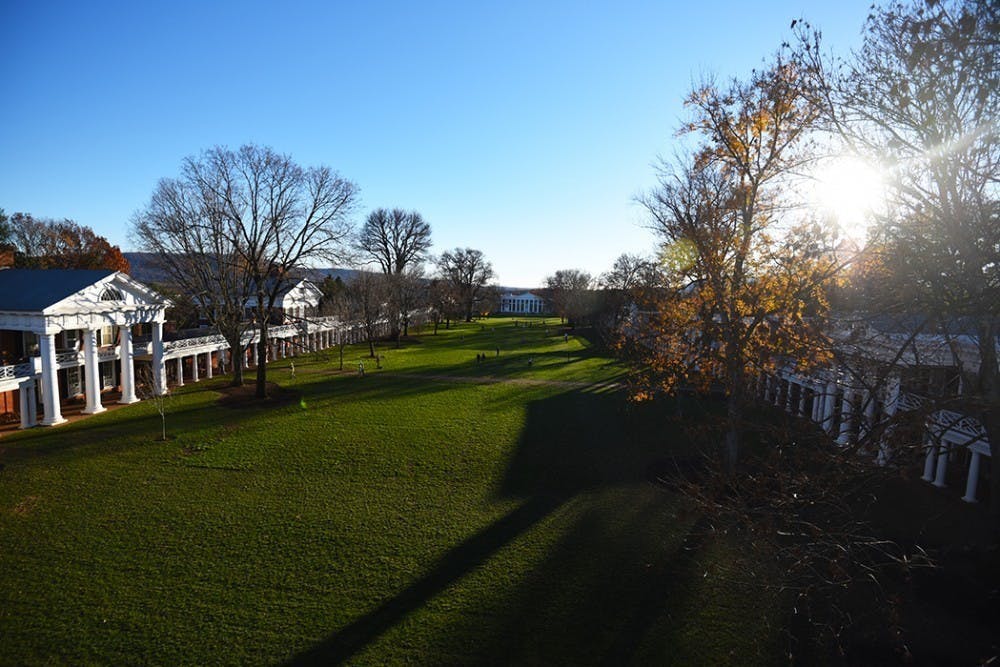A potential return to Grounds this fall poses many challenging hurdles. Thus, in keeping with the University's longstanding tradition of student involvement and self-governance, several students have stepped forward and offered to facilitate the extra work needed to return. Last month, The Cavalier Daily featured a newly-formed group, the Student COVID Coalition, whose mission statement promises, “to volunteer our combined time if and when needed, for the sole purpose of controlling the current COVID-19 pandemic at the University of Virginia.” They intend to accomplish this task by “centrally coordinat[ing] the increased labor needed to operate University of Virginia in the COVID-19 pandemic.”
According to the coalition, the University will need this additional labor for cleaning shifts, regular temperature checks, interior remodeling, construction of temporary buildings, contact tracing, logistics and other tasks upon a return to Grounds. These students likely believe they are doing the necessary and right thing by volunteering their time, but the reality is that this coalition represents a threat to student and worker solidarity.
Student initiatives like the Student COVID Coalition come from the right place, but are misguided. They misunderstand the coming threat to the University community as being one of lack of resources, and not one of opposing interests between administration, students and workers. Volunteering through such an entity effectively does the work of the administration while letting them off the hook for financial and safety obligations they have to students and workers.
With goals like “contact tracing,” constructing “temporary buildings” to create holding areas and “conducting medical scans or temperature checks” and “cleaning common spaces,” these volunteers stand to harm students and community members more than help. These are jobs that should go to student-workers and community members looking for employment. Some of these tasks are too important to leave up to volunteers and some require skilled labor, such as construction. By providing this labor for free, volunteers directly undermine workers looking to make a living. This is exactly what the University wants. As a corporation, U.Va. will look to cut every corner imaginable if it means it can open in the fall. It is up to current student organizations, workers and community activists to be vigilant in demanding U.Va. implement hazard pay, and that other students don’t undermine solidarity.
All the goals that the coalition seeks to achieve are things that people should be paid for, and truthfully they would not take a massive amount of funding to do so. The coalition estimates that it can contribute 475 hours of labor, for free, per week. Looking at the academic year, there are approximately 28-30 weeks of work. That amounts to between 13,300 and 14,250 paid hours at $15 an hour — or just between $199,000 and $213,000 in total costs for the entire year. For an institution like the University with an operating budget of $1.9 billion, this is so little that suggesting free labor is needed portrays a warped view of the University that benefits no one.
Moreover, this is labor that is essential to the functioning of our university — we need to value it as such. No matter the cost, this labor has to be done for a safe semester. Even if the estimates above are widely off, we can’t settle for shortcuts. We need a robust layer of new workers dedicated to the maintenance and safety of everyone on Grounds and in the Charlottesville community. Fifty jobs could quite possibly be the very difference between families going hungry, students taking out more loans and people being evicted. The stakes are too high to let volunteers take the place of workers. We need solidarity, not service.
Repeatedly the coalition has claimed that they won’t be competing with other workers, and will only be taking jobs that would otherwise not be filled. This fundamentally misunderstands how demand for labor operates. During a recent town hall hosted by Student Council, Ja'Mel Reed, who serves as the student representative on the University’s Fall 2020 Committee, explained that “The Committee is working to ensure the volunteer labor supports areas where paid staff are limited/unavailable, rather than having the group replace paid jobs,” according to a tweet paraphrasing Reed. Elsewhere, a representative of the coalition explained, “We do not want to be taking away paid positions from employees — that’s kind of counterintuitive.” The issue with this declaration is that demand for COVID-related labor is an objective reality of the University operating under pandemic conditions. All the work this coalition wants to do has to be done one way or another. By volunteering, these students fill the demand for labor and take away what would otherwise be jobs for their fellow students or members of the Charlottesville community-at-large. Whether they think so or not, they are competing with other workers. Why would a money-driven University pay for labor that they can get for free by painting it as student self-governance?
The responsible and correct thing for the Student COVID Coalition to do is to dissolve immediately and demand that this labor is paid for with a living wage to both students and community workers. A commitment to service — to doing good — only extends as far as the actual actions this group takes. As it stands, the coalition may be committed to service, but it is not committed to workers.
Jacob Wartel is an Opinion Columnist for The Cavalier Daily. He can be reached at opinion@cavalierdaily.com.
The opinions expressed in this column are not necessarily those of The Cavalier Daily. Columns represent the views of the authors alone.
Correction: This article previously misattributed a paraphrased quote from the student representative on the University’s Fall 2020 Committee as referring to the work of the COVID Coalition Executive Committee. It has been updated to reflect that the quote refers to the work of the Fall 2020 Committee.







